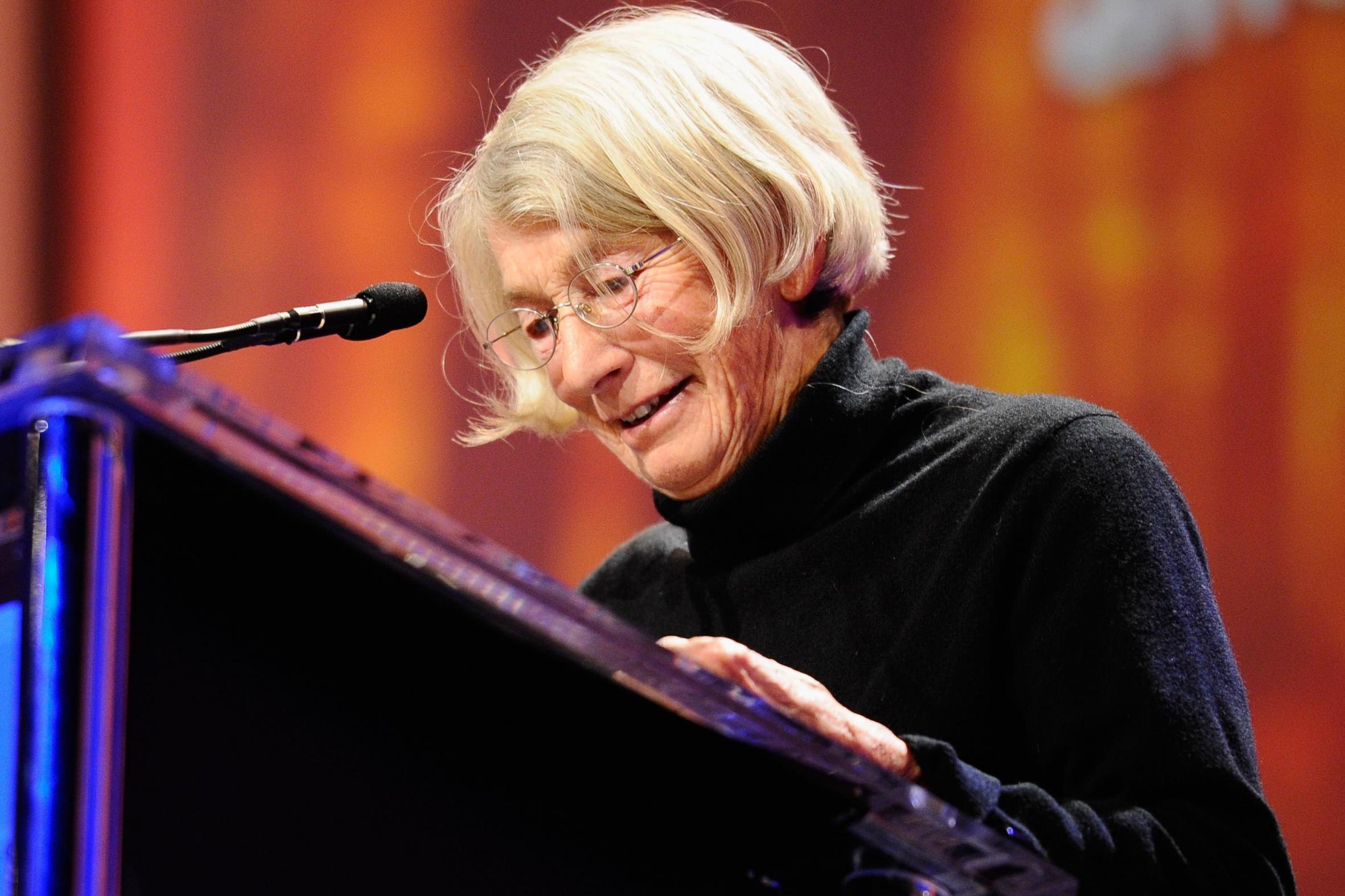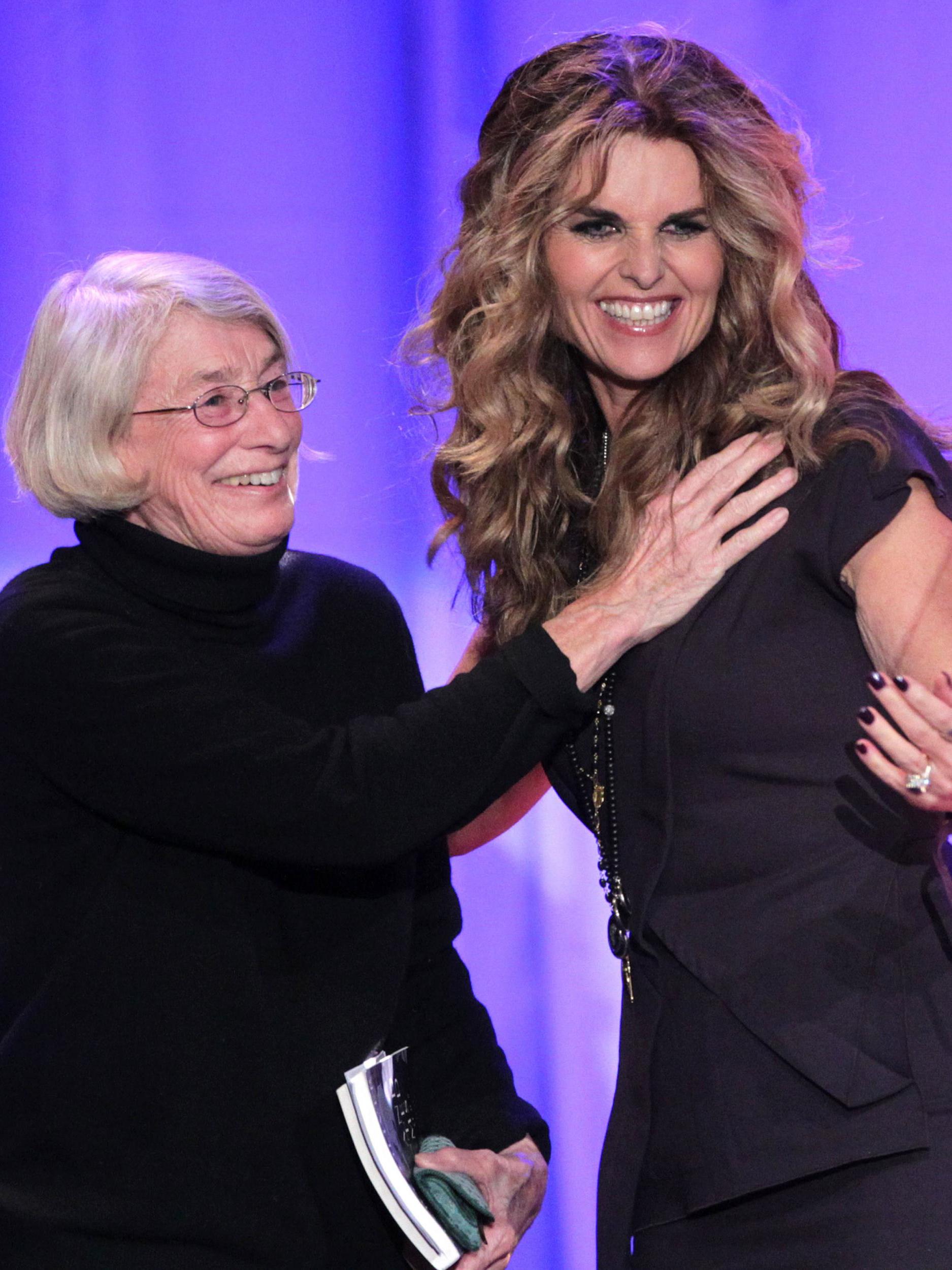Mary Oliver: Pulitzer Prize-winning poet who cracked mainstream success
She rose from a traumatic childhood to become a formidable force of American letters and an inspiration to women

Life is a matter of learning to love the world even in the face of ugliness and pain, the work of Mary Oliver, who has died aged 83, seems to suggest.
The Pulitzer Prize-winning poet’s lyrical descriptions of the lamp-eyed owl, the white-tooth bear and the lilies by the pond evoked natural wonders with a startling clarity of vision.
Oliver, who lived in Florida, was ever prolific, publishing a new collection almost every other year. As a bestselling poet, she was a rarity of modern American literature.
Her popularity was such that she was interviewed by the journalist Maria Shriver – who as the wife of Arnold Schwarznegger was first lady of California – for O, The Oprah Magazine. Hillary Clinton thanked her “for giving so many of us words to live by”.
Often compared to her literary idol Ralph Waldo Emerson, with whom she shared an abiding interest in the natural world, Oliver combined a precise, unfussy style with an almost religious devotion to examining nature.
Sexually abused by her father and neglected by her mother, she spent much of her childhood walking in the woods near her Ohio home, scribbling lines in a notebook and reading from a volume of Walt Whitman poetry she kept in her knapsack. She described nature as a source of solace, beauty and wisdom, perhaps most memorably in her poem “Wild Geese”:
Whoever you are, no matter how lonely,
the world offers itself to your imagination,
calls to you like the wild geese, harsh and exciting –
over and over announcing your place
in the family of things.
“I could not be a poet without the natural world,” she once wrote. “Someone else could. But not me. For me, the door to the woods is the door to the temple.”
While many of her contemporaries were creatures of the academy, holders of graduate degrees and distinguished professorships, Oliver kept her distance. She never graduated from university and taught only occasionally, including for several years at a college in Vermont. With the exception of her partner, Molly Malone Cook, with whom she lived in Provincetown, Massachussets, for more than five decades, Oliver seemed to prefer the company of dogs to people.

Yet her poetry was far from aloof, encompassing themes of love, prayer and beauty in a warm and plain-spoken style that divided critics and literary scholars, some of whom accused her of sentimentality. Oliver chalked up the criticism to “a kind of eliteness among academics”.
Writing in free verse, she eschewed the formal experimentation of her modernist contemporaries and followed in a line of pastoral American poets that included Marianne Moore, Elizabeth Bishop and Edna St Vincent Millay, at whose home Oliver lived for several years as a teenager. She also found inspiration in Rumi, whom she described as a model of brevity and spiritually focused poetry.
Oliver was 28 when, in 1963, she made her literary debut with No Voyage and Other Poems. She went on to receive the Pulitzer for her 1983 collection American Primitive and America’s National Book Award for poetry for her 1992 work New and Selected Poems.
“Although few poets have fewer human beings in their poems than Mary Oliver, it is ironic that few poets also go so far to help us forward,” poet and novelist Stephen Dobyns wrote for The New York Times, reviewing New and Selected Poems. Her work, he argued, was focused on the question of how to love the world when it is “intrinsically unlovable,” when nature is “neither pretty nor nice” and “life is mostly a matter of dying”.
Oliver’s answer to that question, which she herself posed in the poem “Spring,” was simple but profound: Learn to love, and thus to live, by tending to the world. “To pay attention,” she wrote in another poem, “this is our endless and proper work”.
Mary Jane Oliver was born in Ohio in 1935. Her father was a social studies teacher in the nearby Cleveland school system, and her mother was a secretary at a local school. “I had a very dysfunctional family, and a very hard childhood,” Oliver told O magazine in 2011. She suffered sexual abuse when she was “very little,” she added. “So I made a world out of words. And it was my salvation.”
Oliver began writing when she was 14, always while walking, as an escape from her troubled home life. “To this day,” she told the radio programme On Being, “I don’t care for the enclosure of buildings.”
After graduating from high school, she left Ohio, travelled to Millay’s house in upstate New York and befriended the late poet’s sister, helping to organise Millay’s papers. She studied at Ohio State University and Vassar College but never received a degree.
Oliver was visiting the Millay estate in the late 1950s when she met Cook, a Village Voice photographer who later became a gallery and bookstore owner and an assistant to writer Norman Mailer. Together, they settled in Provincetown, sometimes feeding themselves by foraging for berries and digging for clams.
Often described as a recluse, she gave few interviews because of what her biographer Lindsay Whalen called “an older understanding” of what it meant to be a poet. “The poem was a direct communication with the reader,” Whalen said in an interview. “For her, a knowledge of the personal details of the writer’s life was just a distraction.”
Her other works included House of Light (1990), the book-length poem The Leaf and the Cloud (2000), Dog Songs (2013) and Devotions (2017), a career-spanning collection of more than 200 poems. Oliver also published several books of prose, including the essay collections Long Life (2004) and Upstream (2016).
With Cook’s death in 2005, Oliver – who has no immediate survivors – took on an increasingly personal tone in her work. She also became more overtly political, critics said, as her nature poems were shadowed by allusions to climate change and environmental destruction.
Still, there remained the sense of wonder that Oliver had nurtured for decades, and memorialised in works such as “When Death Comes,” from “New and Selected Poems”. The poem ended with Oliver looking ahead to her own death, writing:
When it’s over, I want to say all my life
I was a bride married to amazement.
I was the bridegroom, taking the world into my arms.
When it’s over, I don’t want to wonder
if I have made of my life something particular, and real.
I don’t want to find myself sighing and frightened,
or full of argument.
I don’t want to end up simply having visited this world.
***
Mary Oliver, poet, born 10 September 1935, died 17 January 2019
© Washington Post
Join our commenting forum
Join thought-provoking conversations, follow other Independent readers and see their replies
Comments
Bookmark popover
Removed from bookmarks